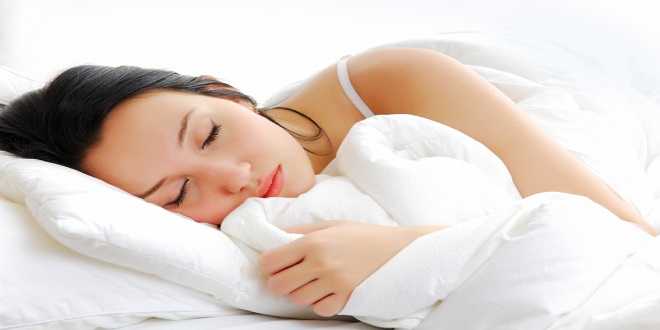The importance of sleeping

In my younger years, rest was a way to an end. Nature’s method of frustrating my desire to fit as many exercises into a 24-hour period as possible under the circumstances of a 9ja news finding. For example, I would sometimes flee California to cruise (or so I thought) the next day with only four hours of rest.
My disregard cost me in ways that I didn’t fully appreciate. My partner referred to our evenings at the theater and dance as Jane’s most expensive rests. Eventually, they gave up their memberships. It was also difficult to drive. I fell asleep twice at night, barely avoiding calamity. Now I realize that I was suffering from a lack of sleep.
I don’t want to fall asleep during complex developments and I will never allow my significant other to drive me around. Additionally, I don’t think twice about my ability to think and to respond. The New York Times Magazine recently reported that “the sleepless among us” are horrible adjudicators of their own rest needs. We may not be as sharp as we think.
Studies show that people are most capable after seven to eight hours of sleep. I am currently going for the gold seven hours because it is the amount with the lowest death rate.
But, most nights, it seems that something is meddling, keeping me awake later than I planned. This includes a family task, an email that requires a critical and intelligent response, a sympathy note I never had the opportunity to write during the day, and a lengthy article I should read. It’s always something special.
What keeps us going?
I know that I’m not the only one. Between 1960 and 2010, adults in the United States got a night of rest that was six and a quarter hours, instead of more than eight. Some experts predict a decline in productivity due to interruptions such as email, text messaging, and online shopping.
Rest can be affected by age. Gallup Organization conducted a 2005 telephone survey of 1,003 adults over 50. They found that only a third of those with more experience got a good night’s sleep consistently. Half of them slept for less than seven hours each night, while one-fifth slept under six hours each evening. Normal changes in the quality of rest occur with increasing age.
Some people may take longer to fall asleep, or they might be more tired. They will also feel lethargic before bed and wake up in the morning. The lighter phases of sleep are more time-consuming than the supportive deep rest. The amount of REM sleep, which is when the psyche processes emotions and recollections, decreases as we age.
There are many things that can ruin rest. These include less work, more time outside (daylight is your body’s primary controller for sluggishness, alertness, and fatigue), less consideration about diet, taking prescriptions that can disrupt rest, focusing on a chronically ill companion, or having an accomplice wheezing. It is possible to use alcohol to induce rest, but it can actually disrupt rest.
This list includes a number of rest-ransacking medical issues, such as hard joint pain, despondency and nervousness, rest anxiety, rest apnea or hot blazes for ladies, and prostate widening in men.
My better half suffered from a propensity for fidgeting. He was forced to walk around midnight in pain until the side effects subsided. A new evening brought me back to consciousness. I felt like my legs were going crazy and couldn’t stop.
Excellence, rest and then some
A good night’s sleep is more than an indulgence. Its benefits include upgrades for fixation and momentary memory, efficiency as well as temperament and safety.
If you are concerned about how you look, you might find yourself more attractive if you get more sleep. Researchers from the Netherlands and Sweden conducted a review that was distributed online in December in the journal, BMJ. They found that 23 adults who were restless had less soundness, more drain and less attractive than those who had gotten a full night’s sleep.
Perhaps even more important, worrying can make you fat. Harvard experts found that people who slept for five hours or less each night weighed 5.4 more and were 15% more likely to gain weight than those who slept seven hours a day.
Michael Breus, a Scottsdale-based clinical physician and expert on rest and creator of “The Sleep Doctor’s Diet Plan”, points out that while the average length of sleep has decreased in the United States, the typical American load has increased. This could be due to a number of reasons.
Two elements could be involved. Additional waking hours spent in overstuffed homes with food and other tidbits, and possible changes in the chemical leptin or ghrelin that manage hunger. A 2009 review published in The American Journal of Clinical Nutrition by Dr Plamen D.Penev, an endocrinologist from the University of Chicago and her co-creators examined the calorie use and utilization of 11 sound workers during two 14-day stays at a rest research facility. There was unlimited access to delicious food at both meetings. Five women and six men were allowed to rest for 5.5 hours each night, while the other gave them 8.5.
Although the subjects consumed similar amounts of food at dinner, they consumed an average of 221 calories more from snacks during short evenings than when they were getting more sleep. They ate snacks that were high in carbohydrates, which meant they didn’t use as much energy during the longer evenings. The researchers concluded that the extra evening snacking could have an effect of almost one pound on body weight in just fourteen days.
The specialists did not find any significant changes in blood levels of leptin or ghrelin in the members. However, others have discovered that short-sleepers have lower levels of hunger suppressing leptin levels and higher levels of ghrelin which can cause an increase in calorie intake.
A rest misfortune could also affect the ability of a collection of neurons in the nerve centre of the mind. Orexin is a chemical that engages with the guideline to taking care of conduct.
You must resist the urge to squeeze another thing in at the end of your day. If you have any medical conditions that interfere with your sleep, seek therapy to reduce their impact.
Last word
If you have trouble sleeping or are unable to sleep at night, you might consider taking melatonin enhancements. This is the body’s natural rest inducer. It is always at my bedside. You can also try to sleep through the night as an option. The benefits of rest can be a boost in mental capability, energy and temperament as well as efficiency.




